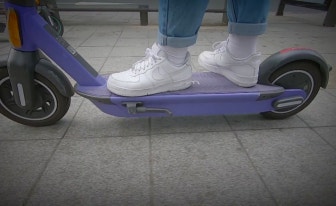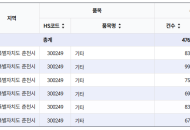Samsung Electronics is crashing into the extended reality (XR) race with a bang, unveiling a headset that’s sleeker, lighter — and dramatically cheaper — than its competitor Apple’s Vision Pro.
What dampened consumer excitement headfirst for the Apple device was its staggering price — starting at $3,499 for the 256-gigabyte model — a sticking point that drew more attention than its immersive technology, sleek design or overall practicality.
Samsung’s Galaxy XR, by contrast, undercuts that figure by nearly half, debuting at 2.69 million won ($1,800) for the same amount of storage. At 545 grams (19.2 ounces), it’s also far lighter than Apple’s 800-gram M5 model, giving Samsung a clear edge among users craving comfort and portability.
In contrast to Apple’s target of luxury niche, Samsung is setting its sights on the mass market, positioning the Galaxy XR as the bridge to a broader wearables ecosystem that could soon include smart glasses.
“We see XR as a long-term frontier — something we’ll be developing and evolving over the next decade,” said Kim Jeong-hyun, vice president and head of Samsung’s Mobile Experience Division, at a press briefing in southern Seoul. “This is only the beginning — a product that delivers truly immersive, multimodal experiences. But we won’t stop here.”
Kim hinted that Samsung’s next leap could merge tech with fashion, emphasizing that “glasses are as much about style as they are about function.” The company has already teamed up with eyewear brands Gentle Monster and Warby Parker to craft its first smart glasses, signaling that Samsung’s XR ambitions are only just starting to take shape.
Lightweight design
The first impression of Samsung’s new headset was, unexpectedly, its refined design. Offered in a single color — Silver Shadow — the device feels markedly sleeker and lighter than Apple’s bulkier Vision Pro.
Code-named Project Moohan, meaning “infinite” in Korean, the Galaxy XR has been in joint development with Google and Qualcomm since February 2023. It runs on the Android XR platform, powered by Qualcomm’s Snapdragon X2 Plus Gen 2 chip set and comes equipped with Google’s Gemini assistant, capable of handling multimodal commands through text, images, voice and video. Samsung’s popular Circle to Search feature, which makes pulling content directly from the web seamless, is also built into the system.
Hands-on experience
During a live demonstration, a Samsung employee donned the Galaxy XR and asked, “Gemini, take me to Manhattan, New York.” Instantly, a sweeping aerial view of Manhattan’s skyline appeared, as if she were hovering above the city. When prompted for pizza recommendations, Google Maps displayed nearby restaurants with menus and interior views.
The reporter had a brief chance to experience the device firsthand. The headset responded fluidly to gestures, allowing her to explore YouTube XR content — from lounging on the beaches of the Maldives to watching a volcano erupt in vivid detail.
The short 10-minute session wasn’t long enough to gauge potential eye strain or long-term comfort, but one immediate thought stood out: The headset could transform how fans experience concerts and live events, offering virtual front-row seats unrestricted by location or time. At this pace, nearly any visual or auditory experience could be convincingly recreated within the XR world.
Samsung also appears keen on cultivating a robust content ecosystem, ensuring long-term engagement beyond the initial novelty of the hardware. Unlike Apple’s Vision Pro, which lacks YouTube and Netflix, the Android-based Galaxy XR allows users to access all apps from the Google Play Store, meaning that they could access the same apps as their Android smartphones.
In Korea, Samsung has partnered with Naver’s streaming platform Chzzk for XR-exclusive content and plans to expand offerings in collaboration with Adobe, MLB and the NBA.
The company plans to expand XR adoption in the industrial sector, focusing on fields such as health care and shipbuilding to provide more advanced training and simulation experiences.
The Galaxy XR officially launched Wednesday in both Korea and the United States.


![Samsung’s Galaxy XR headset displayed at the company’s Gangnam store in southern Seoul on Oct. 22. [YONHAP]](https://imgnews.pstatic.net/image/640/2025/10/22/0000078695_003_20251022191913630.jpg?type=w860)
























































